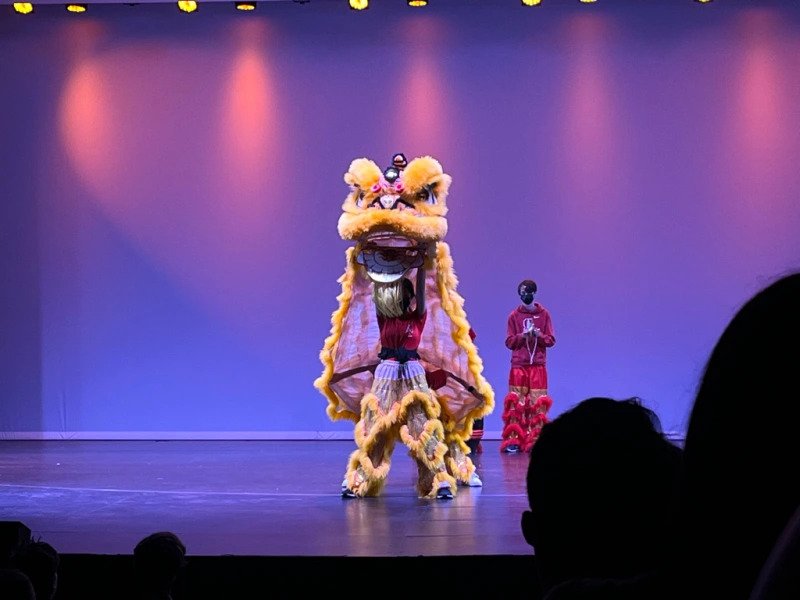Content warning: This message references anti-Asian violence/racial violence.
Earlier this quarter, a man was found and detained on campus after threatening to enact violence against Stanford’s Vietnamese community. After posting a series of online threats and racially charged comments against Stanford’s Vietnamese students, the individual physically showed up on campus — and was located while making active threats of direct harm to a graduate student. Yet, despite the severity and proximity of the threat of violence during this event, Stanford never issued a University-wide announcement about what occurred. In the aftermath, we in the Vietnamese community are left wondering: are students meant to bear the responsibility of keeping our community safe and informed?
Throughout the month of March, Stanford’s Vietnamese Student Association (SVSA) received a series of racially violent and hateful comments on its public Instagram account. The anonymous comments expressed strong self-loathing and hate towards the poster’s own Vietnamese identity and included death threats towards members of SVSA. One comment stated, “If you carry a Vietnamese last name, you will die first. This is a promise.” Others included threats such as “You’re not coming home” and “I will be pulling up to your events in person and exacting my revenge.”
SVSA leaders notified the Department of Public Safety (DPS) after receiving each wave of hateful comments, asking for guidance on whether it was safe to proceed with the association’s annual Culture Night show. DPS determined in coordination with Stanford’s Threat Assessment team that there was not an immediate threat to SVSA and indicated that they believed the threats were not racially motivated. DPS identified a possible suspect on the East Coast and advised that SVSA was safe to move forward with Culture Night with additional security measures. During this exchange with DPS, several town halls were held where student community leaders bore a majority of the stress and responsibility for responding to this threat, with little to no support from senior University leadership.
The situation escalated in early April when SVSA leaders were notified that the non-Stanford affiliated suspect had been discovered on campus, and in fact had likely been at Stanford for several weeks. The suspect was detained by DPS on April 6 after posting a threat on social media towards a Stanford graduate student, which indicated his real-time location at the Graduate School of Business. The suspect, confirmed as a Vietnamese-American male, admitted to posting the aforementioned threats on the SVSA Instagram account and shared he held a grudge against Vietnamese people. While the suspect had no weapons in his possession, he was transferred to a hospital for evaluation out of concern for his mental health and wellbeing. Three days later, the suspect was released from psychiatric hold and issued a “stay-away order” from Stanford. As of April 14, the individual has allegedly returned to his family on the East Coast. Amidst intense concerns of physical and psychological safety, SVSA leaders made the difficult decision to cancel SVSA Culture Night.
This event has been severely distressing and traumatizing for many members of Stanford’s Vietnamese community, particularly those that were directly threatened and those who bore the responsibility of urging the University to respond. Anxiety and fear gripped our community as the threat of racial violence hung over us for over a month. Repeated online threats culminated in the physical presence of a suspect on campus. However, despite the severity of the event, Stanford has yet to issue a University-wide announcement about what occurred or denounce this act of racial hate and intolerance. This left students feeling isolated and unsafe as many different systems and people representing the University continue to fail us. Though a community letter from the Asian American Activities Center (A3C) was sent to Asian-interest mailing lists, no announcement was sent to the University at large, leaving the majority of students, many of whom are themselves a part of the Vietnamese community, wholly uninformed and largely alone to deal with the impact of harm perpetrated.
When Stanford fails to bring attention to anti-Asian violence, they fail to acknowledge the very present racial hate that persists on this campus. They minimize the lived experiences and concerns of marginalized communities of color, and they endanger students who deserve to be informed about threats of violence against their community. Events such as these affect our community at large, and the University should have published a University-wide announcement rebuking racial violence and hate, while affirming Stanford as an institution that values and supports students of all marginalized identities to feel safe and to thrive. Their failure to publicly denounce this act of racial hate signals that the University does not take concerns like this seriously. It minimizes the extent of the harm done to our community. And it sends a message that anti-Asian violence is an Asian/Asian American issue, not a University-wide one. The University’s silence equates to complicity.
May was Asian Pacific American (APA) Heritage Month, and in the aftermath of these events, those of us in Stanford’s Vietnamese community are reflecting on the nature of anti-Asian violence that has and continues to occur on this campus. We wonder how and why Stanford leadership and systems failed to really see and protect students. When the University remains silent on an event such as this, it is difficult to feel that the University takes transgressions against its APA community seriously. This event has raised serious questions about the University’s “selectiveness” in which issues and communities merit attention from the highest levels of University leadership, and which are ignored.
It is clear that Stanford prioritizes protecting its reputation. But how bad do things have to get before the University can’t ignore it any longer? How severe will the next hate incident against APA communities on campus be, and will the University remain silent then, too?
Britney Tran ’24, Dwight Hua ’23, Kyle Nguyen ’23
